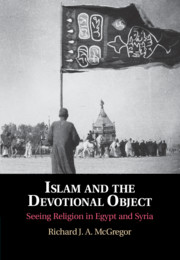This article explores the performative politics of devotional soundscapes at Coptic Christian mūlid festivals. Echoing the state's reformist efforts in the 1990s to transform Muslim saint festivals into utilitarian spaces and their goers into “modern” Egyptian citizens, today the Coptic Church works to refashion these popular festivals from places of debauchery into morally productive spaces. Aided by affluent Cairene-based volunteers, church choirs travel from Cairo's poshest neighborhoods to these festivals to actively sing, disseminate, and teach popular religious songs (taratīl) in an effort to develop poorer Christian pilgrims into modern, pious, and more audible “citizens of heaven.” Through the analysis of one church choir's taratīl ministry at the mūlid, I illustrate how middle-class spiritual volunteers disrupt and, at times, reinscribe the Coptic Church's disciplinary efforts on the festival's poorer pilgrims, particularly as they look to modernize popular festivity into grounds of Christian ethical transformation.


